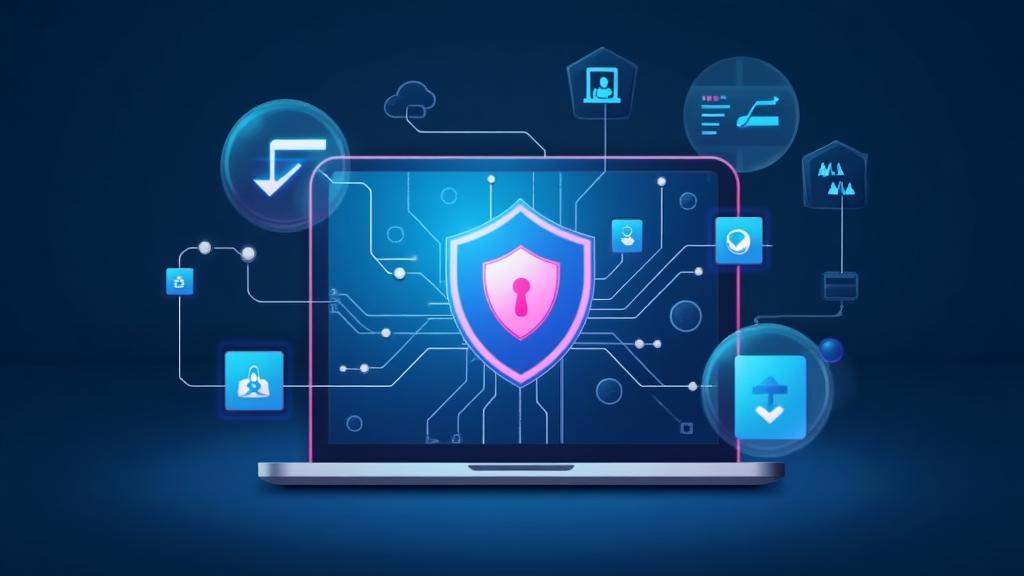
With just a tap on your phone, you can connect with anyone in the world today. In a time like this, it is important that you observe sensible online security tips to protect your personal details. From bogus payment links to malicious software embedded in seemingly innocuous attachments, cyber threats have increased in number and sophistication. Knowing how the fraudsters think and learning successful countermeasures makes you one step ahead.
Common Threats You Should Know
Payment Frauds and UPI Scams
Most of us use net banking and UPI on a daily basis. But fake apps or duplicate websites mislead individuals into providing OTPs or login details. For example, one of my friends once got a message saying that it was from her bank, and she was being given cashback. She clicked the link and unknowingly provided her details, losing money in minutes.
Real-world reports indicate Indians have been cheated of more than Rs. 1,750 crore through cyber scams in the initial four months of 2024, commonly through UPI and card payments.
Phishing and Spoofed Emails
Scammers send seemingly official emails—false bank notifications or parcel delivery receipts—to capture login information. I have a memory of an uncle who clicked on a link regarding an outstanding railway ticket refund; his email was hacked.
Phishing is still one of the top vectors, with thousands of reports registered every day in India.
OTP Fraud and SIM Swapping
OTP frauds shoot through the roof when attackers phish telcos into porting your number. After they get control of your SIM, they reset passwords across the board. Before you even realize it, your bank, social media and even email accounts are hijacked.
Millions of such account-takeover attacks reportedly occur every year in India.
Must-Know Online Security Tips
Use Strong, Unique Passwords
A password such as “12345678” or your birthdate is a hacker’s free pass. Use a combination of letters, numbers and symbols—something nobody will ever guess. Furthermore, never reuse passwords across different sites. If one site gets hacked, all your accounts remain safe.
Turn on Two-Factor Authentication
Two-factor authentication provides an extra layer of protection. Even if someone has your password, they still require the one-time code on your phone or an authenticator app. So always turn on 2FA for bank, email and social-media accounts.
Be Careful with Suspicious Links and Attachments
Thieves take advantage of curiosity—such as a surprise bill or an unbelievable coupon code. So check the sender first before clicking and scan attachments for viruses using antivirus software.
Also, float over links to ensure the true URL before clicking.
Keep Software Up to Date
Mobile apps, browsers and operating systems release updates to close security breaches. Failing to install them in a timely manner leaves you exposed.
Just as you seal a leaky roof to prevent rain from entering, updating software repels malware.
Use Secure Networks Only
Public Wi-Fi in airports or cafes could be unsafe. So do not bank or shop using open networks.
If at all, employ a reputable VPN service to cloak your connection. Thus your data stays secure from intruders.
Install and Update Antivirus Tools
A good antivirus can detect and isolate malware before it can cause damage. But no solution is ever perfect—so pair it with safe browsing habits.
Antivirus software is like a watchdog that warns you that intruders are present.
Monitor Your Account Activity Routinely
Check bank and payment apps every few days for suspicious transactions. If something seems amiss, report it to your bank at once.
Catching it early can avoid larger losses.
Back Up Critical Data
Periodic backups on an external drive or safe cloud storage enable you to recover from ransomware attacks or device crashes.
Keep backups as a safety net beneath your tightrope of day-to-day work.
Real-Life Example: Village Cooperative Approach
In a small town in Pune, the shopkeepers created a WhatsApp group to exchange tips on fresh scams. Every time someone was a victim, they alerted others immediately, so nobody else lost anything.
This ‘digital panchayat‘ illustrates how information-sharing and community action make collective security more robust.
Personal Takeaway
Sincerely, after having a scare with a spoofed EMI message, I now think twice before clicking a link and practice these online security tips on a daily basis.
Risks might never go away, but prudence and good habits can keep our information secure.
Read more artical for Finance here: Finance | sochbuzz
Leave a Reply